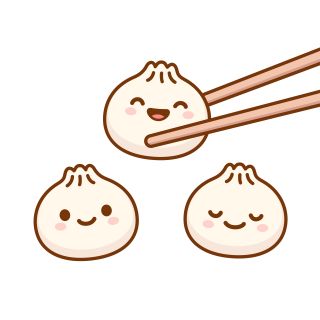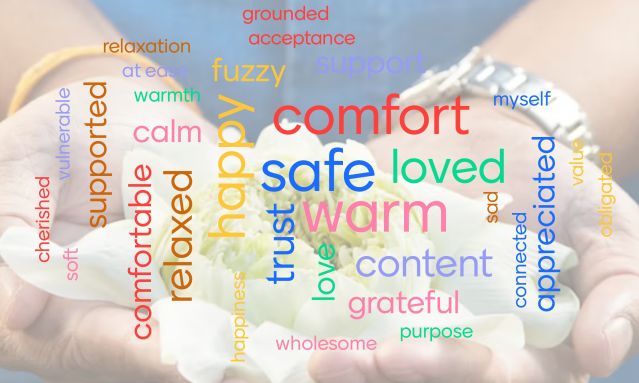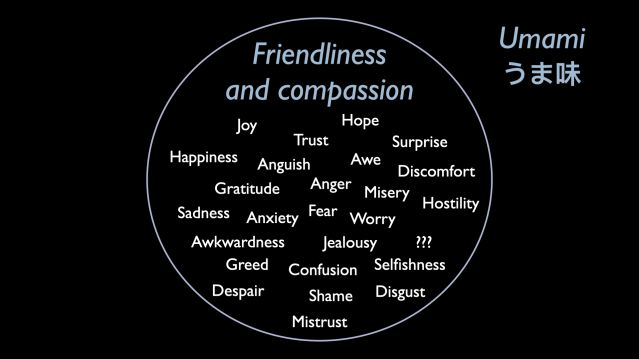Relationships
What Do We Feel When We Feel Close? The Dim Sum Dialogues
Asian American (and human) friendship, community, and anger.
Updated September 19, 2023 Reviewed by Michelle Quirk
Key points
- We are social beings, and we transmit emotions to each other in subtle ways.
- We affect each other’s moods, blood pressures, and levels of cortisol, oxytocin, and other hormones.
- There is a biological and spiritual basis for interdependence.

What emotions do we feel when we feel close to someone? I recently asked a group of Asian American medical students. Below is a word cloud of their answers:
These medical students reported feeling “comfort, safe, love, happy, warm, trust, content, appreciated, grateful, relaxed, calm, at ease, relaxation, grounded, acceptance, cherished, connected, myself, soft, value(d)” … but also “vulnerable, sad, and obligated.”
I said that when I feel close to someone, I feel at least a little bit of what they’re feeling. As human beings, we have “open limbic loops.” We are social beings, and we transmit emotions to each other in subtle ways. We affect each other’s moods, blood pressures, and levels of cortisol, endogenous opiates, oxytocin, and other hormones. It’s really hard, in this sense, to know where one person leaves off and the other begins. There is a biological and spiritual basis for interdependence.

In the half-hour dialogue, held between friends at a recent dim sum gathering, we talked about what brings us together as an interdependent community. I settle on “food, friends, family, fun, (and for me, film) and flocking,” but also our feelings, particularly “fire,” or how we deal with anger. As Asian Americans, we can feel a futility and overwhelm when dealing with personal, interpersonal, or socio-cultural distresses. We can also feel a protective and defensive anger for ourselves and for community.
I refer to that famous scene in Lulu Wang’s film “The Farewell,” which highlights the importance of flocking, and the need to have a group to help bear and manage one’s distress. In the scene, the granddaughter, Billi, argues with her uncle and father over whether to tell her grandmother that she has a terminal diagnosis. The uncle says that the group must bear the grandmother’s distress and not disclose the diagnosis. However, Billi has no group, really, as an Asian American immigrant. She has only the feelings of closeness to her grandmother and great feelings of impending loss. Who will bear her distress, perhaps unique in her family? She needs to become the “designated emoter” as I call her, the “speaker of the house,” because only through emotional expression can a greater group be created, can distress be understood and shared.
This is the process that I’ve seen happening throughout the Asian American community during the pandemic, as we’ve reached for one another, heard one another, and understood one another as we’ve undergone the great stresses of the pandemic and the surfacing wounds of racial injustice, including anti-Asian hate. It’s not perfect, and, of course, as minorities, we need greater understanding from the majority as well.
Each of us is a work in progress. Belonging and community are works in progress. But I hope that over the next year, as we engage in our dynamic political situation, we will continue to hear each other’s distress and create belonging and community. I think we can do this by adding a touch of the umami, the extra flavor, of friendliness and compassion, that can make our inner lives and relatedness more tasty and delicious (see diagram below).
Here is the "Dim Sum Dialogues" on YouTube:

(c) 2023 Ravi Chandra, M.D., D.F.A.P.A.
References
“Dim Sum Dialogues” is available on Apple Podcasts, SoundCloud, and YouTube, where you can also watch the film clip I’ll mention
Chandra R. Memoirs of a Superfan Vol. 15.2: Lama Rod Owens and the Emotional Body of Asian Americans. East Wind eZine, August 24, 2020.
Chandra R. Dr. Satsuki Ina on Migrant Detention, Racism and COVID19. Pacific Heart blog, Psychology Today, April 6, 2020.
American Psychiatric Association Caucus of Asian American Psychiatrists. Asian-American Mental Health During COVID-19. YouTube.
Chandra R. Min Jin Lee’s remarks at the Break the Silence Rally, March 16, 2022. East Wind eZine, March 19, 2022.


